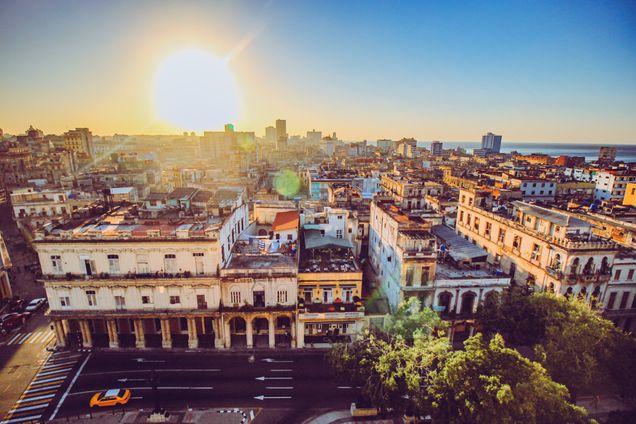Celebrating a Lifetime of Researching Latin America: Q&A with Susan Eckstein

The Latin American Studies Association, the premier international association of scholars of Latin America and the Latin American diaspora, has recently announced that Susan Eckstein, Professor of Sociology and of International Relations at Boston University’s Frederick S. Pardee School of Global Studies, will be awarded the Association’s Kalman Silvert Award for distinguished lifetime contributions to the study of Latin America, the Association’s highest honor. Her research focuses on impacts of social revolutions, agrarian reform, urbanization, poverty, rights and injustices and social movements in Latin America, as well as on US immigration policy and immigrant labor market niches. She has written extensively on Mexico, Cuba and Bolivia, and on immigration and immigrant impacts on their homelands.
Eckstein has authored and edited nine books. She has received numerous grants and fellowships for her work, including from the John Simon Guggenheim Memorial Foundation, the Radcliffe Institute for Advanced Study, the John D. and Catherine MacArthur Foundation, the American Council of Learned Societies, the Ford Foundation, the Rockefeller Foundation, the Tinker Foundation and the Christopher Reynolds Foundation.
Her most recent work has focused on inequities in US immigration policy. Her book, Cuban Privilege: The Making of Immigrant Inequality in America (Cambridge 2022), addresses the unique entitlements presidents and Congress have granted Cubans since the 1959 Castro-led revolution and their unintended as well as intended consequences. The book contrasts US Cuban with Haitian immigration policies, with the hopes of contributing to a more equitable treatment all immigrants.
Below, Susan Eckstein responds to questions and shares the one policy change she would make overnight:
Q; First, we would like to congratulate you on receiving the LASA award. Can you tell us what this award means to you and for your research on Latin America?
SE: I am of course delighted to be selected for LASA’s most prestigious award, for lifetime contribution to Latin American studies. Hopefully, my work advances understanding of Latin America and contributes, in turn, to an improvement of conditions in the region.
The award very kindly also acknowledges the work I did for LASA, on the Executive Committee and, especially, as President, and on various committees on which I served over the years. As President, I negotiated with Oxfam America a lectureship to annually honor outstanding work done to advance human rights in Latin America. I also initiated sections within LASA, to enable members interested in a particular country or topic to share their interests and organize panels at LASA — with Section membership open to all, to thereby expand and democratize participation in LASA.
In addition, I convinced the Ford Foundation to contribute $2 million to a LASA endowment. The endowment funds Latin American participation in LASA congresses and helps make the Association truly international and transnational. LASA began almost exclusively as a “club of white men” concerned about Latin America. In addition, during my tenure as president, the Mellon Foundation awarded LASA nearly half a million dollars to bring LASA into the 21st century technologically. The award enabled LASA to put its publications online, namely the Latin American Research Review and the LASA Forum.
Q: What drew you to researching Latin America?
SE: Quite amazingly, my interest in Latin America began when I was ten years old. I went on a vacation to Mexico with my parents. The people, the culture, the architecture, and more, captured my imagination. In graduate school, I focused my courses and the papers I wrote on aspects of Latin America, and I have focused on Latin America in my work ever since.
Q: What do you think is currently missing concerning research in Latin America? What areas are ripe for examination?
SE: There is so much still to document about Latin America that I find this hard to answer. However, I do think we need to better understand how to reduce inequities in the region, how to improve economies in the region, how to counter democratic backsliding and violence that the region is currently experiencing and how to address climate change.
Q: What are key trends to look out for in Latin America, particularly as we witness polycrises affecting countries across the globe but especially developing countries?
SE: Related to the last question, I think we need to address ways to reduce poverty and inequality, counter the adverse effects of climate change, improve housing and health conditions, and rein in the violence that plagues the region. We also need to address how to make governments in the region more responsive to the needs and wants of all social classes, races and ethnicities, and peoples of diverse sexual orientations. In addition, we need to better understand the implications of changing global geopolitics, such as the rising importance of China and the declining importance of the United States.
Q: What is the one policy change you would make overnight?
SE: Related to my own research, I would urge the US to implement an immigration reform that allows the millions of undocumented immigrants to become lawful permanent residents and citizens so that they can better contribute to the economy and have rights they currently lack. My recent book Cuban Privilege: The Making of Immigrant Inequality in America, as well as another book I wrote, The Immigrant Divide: How Cubans Changed the US and Their Homeland, reveal how much the US, as well as Cubans have benefited from the entitlements they have received. I would hope an immigration reform would also allow for greater immigrant equity, so that certain immigrants are not privileged over other equally worthy immigrants.
*
Read the Book